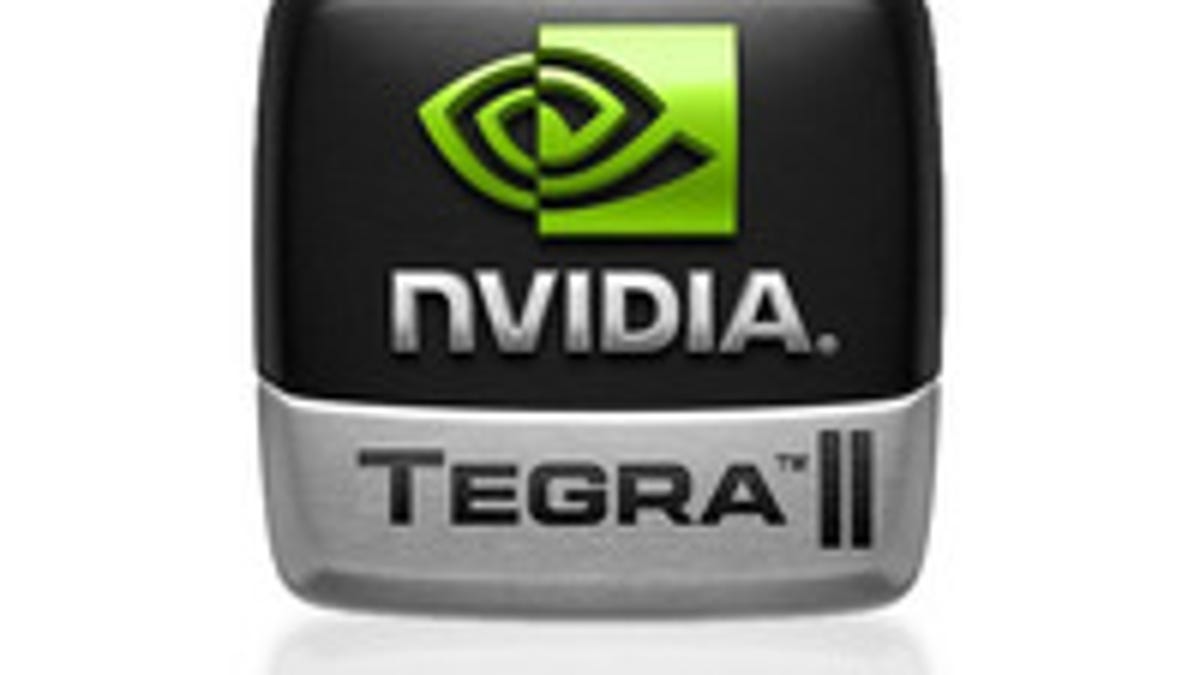What in the world is Nvidia Tegra 2?
You'll be hearing the name Tegra 2 a lot in 2011, so we take a moment to find out why Nvidia's new mobile processor is such hot property.

In 2011 you're going to hear a lot of people in the tech world talking about Nvidia's Tegra 2 processor, but what exactly is it and why should you care?
Google has selected the Tegra 2 as the preferred platform to be used by its manufacturing partner which produces Android-powered tablets, but it won't stop there. Tegra 2 has already popped up in the just-announced LG Optimus 2X and the unannounced LG B smartphones. It was also the power behind the poorly conceived Toshiba AC100 netbook.
Dual-core power
The backbone of the Tegra 2 is not one, but two ARM Cortex A9 processors running at 1GHz each. To put that into perspective, Samsung's Galaxy S smartphone ran a single ARM A8 1GHz processor and managed to rip through the various Android benchmark performance tests we chucked at it. The combination of these two processors shouldn't be confused with a 2GHz output, but instead is capable of dividing tasks between the two processors, sharing the load when the system is multitasking.
On top of the two processors, the Tegra 2 includes a dedicated GeForce graphics processor, which will further divide the workload when elements like video playback, 3D gaming or Flash animations are involved. In a demonstration of the Tegra 2 in a smartphone we witnessed recently, the phone was capable of playing full 1080p video files with the user free to skip anywhere along the timeline without pauses in the playback.
Faster CPU equals lower battery life?
This is the million-dollar question, after all, there's little use in buying a super-fast phone that has a four-hour battery life. The information we have on this so far comes straight from what Nvidia has released, so we'll be interested to put these claims to the test in our test labs, but the long and the short of it is that Nvidia is claiming a 40 per cent reduction in power when you compare a single 1GHz A9 processor running the same workload as the dual-core architecture.
This claim is based on the concept that to manage this sample workload, the two processors need only run at 550MHz each, and the combination of this requires 0.8- volts as opposed to the 1.1- volts needed to power a single processor running at its maximum. Nvidia has written power-r management algorithms into Tegra 2 so that the processors dynamically adjust frequency based on the tasks at hand.
While this example holds true for a majority of smartphone use, there will probably be times when both processors are required to run at high frequency and battery life may suffer. As battery life is continuing to be one of the major sticking points for smartphone users, we'll be keeping a close eye on this area of performance when we get our hands on a device.
Nvidia won't be in the dual-core game by itself. Potential customer Samsung is also developing a dual-core multiprocessor called Orion, the specs of which closely resemble the Tegra 2, but with a different graphics unit, among other differences. Orion will also support multiple storage types including standard computer hard disks and solid-state storage, fuelling our curiosity about which devices these chips may ultimately power.
Where will we see Tegra 2 in 2011?
Motorola Xoom: Motorola's unannounced 10-inch Android tablet will be one of the first tablets to market showcasing Nvidia's chipset.
LG Optimus 2X: announced pre-Christmas and set for a grand unveiling at CES 2011, the 2X will be the first smartphone with a dual-core processor.
LG tablet: LG will follow up its smartphone announcements with a tablet reveal in February. This device will run on Tegra 2.
More tablets: rumours are also coming in that Tegra 2 will be used by Samsung, Asus and Acer in tablets throughout 2011.
Audi in-car navigation: the Tegra 2 will power a bespoke Google Maps navigation solution in new Audi cars next year.

